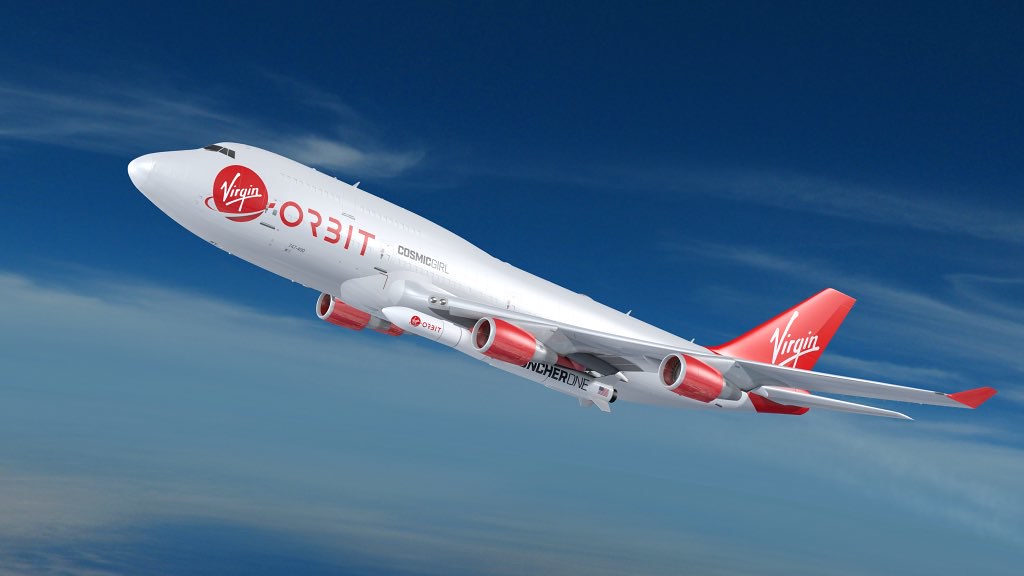WASHINGTON — Virgin Orbit says it is moving ahead with plans to return its LauncherOne rocket to flight later this year even though there is no certainty the company will emerge from bankruptcy.
The company announced April 19 that it completed an investigation into the failure of its previous LauncherOne mission Jan. 9. On that flight, the rocket’s second stage engine shut down prematurely, preventing the stage and its payloads from reaching orbit.
Virgin Orbit said that tests confirmed that the root cause of the failure was a fuel filter that dislodged in the propulsion system and made its way into the Newton 4 engine. Dan Hart, chief executive of Virgin Orbit, said at a conference in February that the fuel filter was the likely cause of the launch failure.
A series of ground tests at Mojave Air and Space Port in California “recreated flight conditions and demonstrated the dislodging and subsequent travel of the filter into the Newton-4 engine,” it stated. Those tests also confirmed the performance of a redesigned fuel filter intended to prevent the problem from reoccurring, although the company did not elaborate on the changes in the filter’s design.
“All potentially credible scenarios were investigated. The modified design, that has now been verified through test, has been incorporated into the company’s next rocket which is planned for flight from Mojave Air and Space Port later this year,” the company stated.
Those tests continued even after Virgin Orbit filed for Chapter 11 bankruptcy April 4. The company retained about 100 employees to continue work on both the investigation and vehicle preparations after laying off about 675 people in late March, just before the Chapter 11 filing.
In a separate statement April 19, the company said it was moving ahead with a proposed sale of the company as part of the bankruptcy restructuring, filing a plan and disclosure document with federal bankruptcy court. That includes a schedule similar to what the company proposed earlier in the month, such as a May 4 deadline for bidders to formally declare their interest in the company and make final bids by May 14.
“We continue to make important progress and remain focused on positioning the company to complete our sale process to the benefit of all stakeholders,” Hart said in the statement. “We remain committed to working with our investors and creditors throughout this process to achieve an optimal outcome for everyone.”
There is no guarantee, though, that the bidding process will result in someone buying the whole company and continuing operations, since bidders can instead propose to buy specific assets.
In a filing with the Securities and Exchange Commission (SEC) April 17, the company said it would continue “reduced rate operations” while in Chapter 11. That includes final preparations of its next LauncherOne vehicle, which it described as “more than approximately 90% complete.”
If the Chapter 11 process allows Virgin Orbit to restructure, “we would seek to conduct our next launch before the end of 2023, with a customer that is currently on contract for that launch.” The company has not disclosed the customer for that launch.
Virgin Orbit would also increase its workforce to about 275 employees, or a little more than a third of its workforce before the March layoffs, by the end of 2023. “Thereafter in 2024, we would seek to increase our launch rate.”
The company struggled to increase its launch rate since its first successful launch in January 2021. The company conducted two launches in 2021 and, after announcing plans for as many as six launches in 2022, finished the year with only two.
Virgin Orbit recorded $33.1 million in revenue in 2022, according to the SEC filing, up from $7.4 million in 2021 because of the higher value of the launches it conducted. However, the cost of those activities more than doubled from 2021 to $85.7 million, which the company attributed to “additional provisions for contract losses booked on future launches, manufacturing variances, and inventory adjustments.”
Selling, general and administrative expenses also increased significantly in 2022, which the company was linked to increased personnel-related expenses. The company reported a net loss of $191.1 million in 2022, compared to $157.3 million in 2021 and $121.7 million in 2020.
If Virgin Orbit does emerge in a restructured form from Chapter 11, it will likely do so under a new name. As part of the debtor-in-possession financing it arranged with Virgin Investments Ltd. to allow the company to continue operations under Chapter 11, it signed a “termination and debrand agreement” that requires it to phase out use of Virgin-associated trademarks and logos. The agreement allows Virgin Orbit to retain the name and trademarks until after the company is sold or other Chapter 11 plan is approved.
